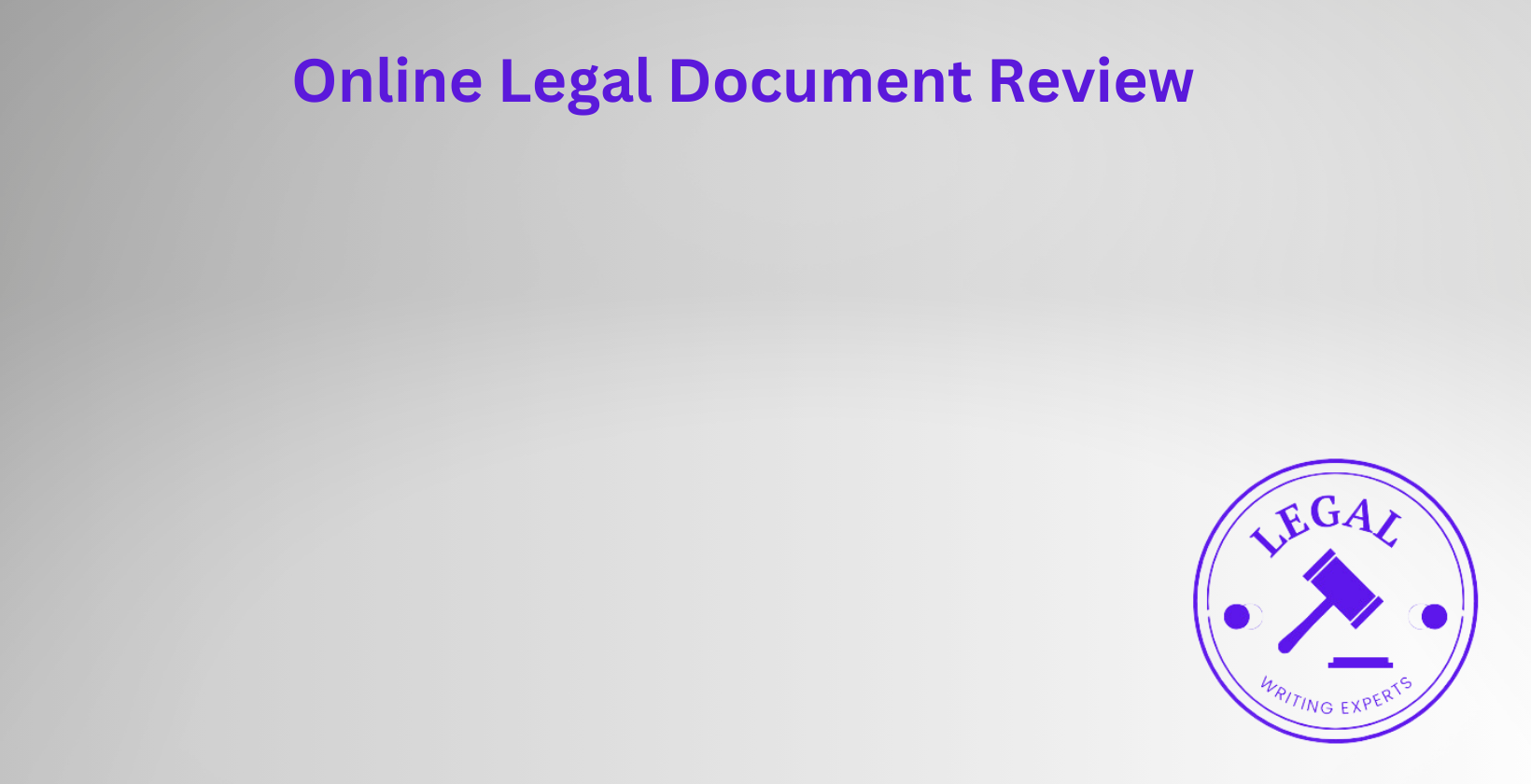Online Legal Document Review
Written by
Jessica E
January 03, 2025 · 8 min read

Online legal document review services are increasingly becoming essential in the digital age, providing individuals and businesses with quick, reliable, and efficient ways to assess the validity, compliance, and suitability of their legal documents. These services utilize professionals, and sometimes artificial intelligence, to streamline the legal review process, ensuring accuracy, confidentiality, and cost-effectiveness. This article explores the fundamental aspects of online legal document review, including its purpose, benefits, challenges, and the impact of AI on the industry.
What Is Online Legal Document Review?
Online legal document review is the process of analyzing legal documents using digital platforms to ensure they comply with relevant laws and meet the client’s specific needs. It involves examining contracts, agreements, or other legal papers for errors, omissions, or potential legal risks. Online platforms offer convenience and accessibility by connecting users with legal professionals who specialize in document review.
How to Write an Online Legal Document Review?
To write an online legal document review, you must clearly outline the document’s purpose and highlight any legal risks or inconsistencies. Use concise, legally precise language to provide a comprehensive analysis. Focus on the specific legal issues pertinent to the jurisdiction and intended use of the document. For example, when reviewing a lease agreement, evaluate clauses related to liability, payment terms, and termination conditions.
Where to Hire a Legal Writer to Draft an Online Legal Document Review?
You can hire a legal writer for an online legal document review through Legal Writing Experts specialized platform that connects clients with experienced legal professionals. Legal Writing Experts is a freelance platform. The Legal Writing Experts freelance platform has attorneys who specialize in contract review, offering their expertise remotely.
How to File an Online Legal Document Review?
To file an online legal document review, submit your document through a designated online platform or email it directly to the legal service provider. Ensure you include all relevant background information, such as the document’s purpose and any specific concerns you need addressed. Platforms often provide user-friendly interfaces to upload documents securely, streamlining the process.
What Are the Benefits of Online Legal Document Review Services?
The benefits of online legal document review services include time efficiency, accessibility, and cost savings. They provide expert insights, ensuring legal compliance and mitigating risks associated with poorly drafted documents. For example, businesses can quickly identify potential loopholes in vendor contracts, preventing future disputes. According to a 2022 study by Harvard Law Review, online platforms reduced the average review time by 40%.
How Do Online Legal Document Review Platforms Ensure Confidentiality?
Online legal document review platforms ensure confidentiality by implementing robust security measures such as encryption, secure file storage, and compliance with data protection regulations like GDPR or HIPAA. For example, many platforms use end-to-end encryption to prevent unauthorized access during file transmission.
What Is the Cost of Online Legal Document Review Services?
The cost of online legal document review services varies depending on the complexity and type of document. Prices typically range from $50 for simple agreements to several hundred dollars for complex contracts or detailed legal assessments. For instance, reviewing a non-disclosure agreement may cost $75, while a corporate merger document review could exceed $500.
How to Choose the Right Online Legal Document Review Service Provider?
To choose the right online legal document review service provider, assess their expertise, user reviews, pricing, and confidentiality measures. Verify their qualifications and specialization in the relevant area of law. For instance, select a provider with experience in intellectual property law for patent review services.
What Are the Common Challenges in Online Legal Document Review?
Common challenges in online legal document review include ensuring accuracy, managing data security risks, and addressing jurisdiction-specific laws. For instance, differences in legal terminology across states or countries can complicate the review process. Technical issues like file compatibility may also hinder efficient communication.
How Is AI Transforming Online Legal Document Review?
AI is transforming online legal document review by automating repetitive tasks, improving accuracy, and reducing review time. AI tools can quickly identify errors, flag inconsistencies, and suggest improvements in contracts. For example, according to a 2023 report by Stanford Law School, AI-powered review platforms improved accuracy rates in identifying legal risks by 25%.
Meet the Author
Distinguished linguist at Legal Writing Experts
Jessica is an expert legal writer with a remarkable blend of legal knowledge and linguistic precision. She earned her Juris Doctor degree from Duke University, where she attended on a prestigious Law Faculty Merit Scholarship. At Duke, Jessica demonstrated her exceptional abilities by serving as an editor of the Duke Law Review.
After graduating, Jessica further refined her skills during a two-year appellate clerkship at a distinguished law firm in North Carolina. Throughout law school, she enhanced her research and writing expertise as a research assistant and writer for various legal firms. Jessica’s deep understanding of legal language and meticulous attention to detail make her an invaluable asset to our legal writing services.


